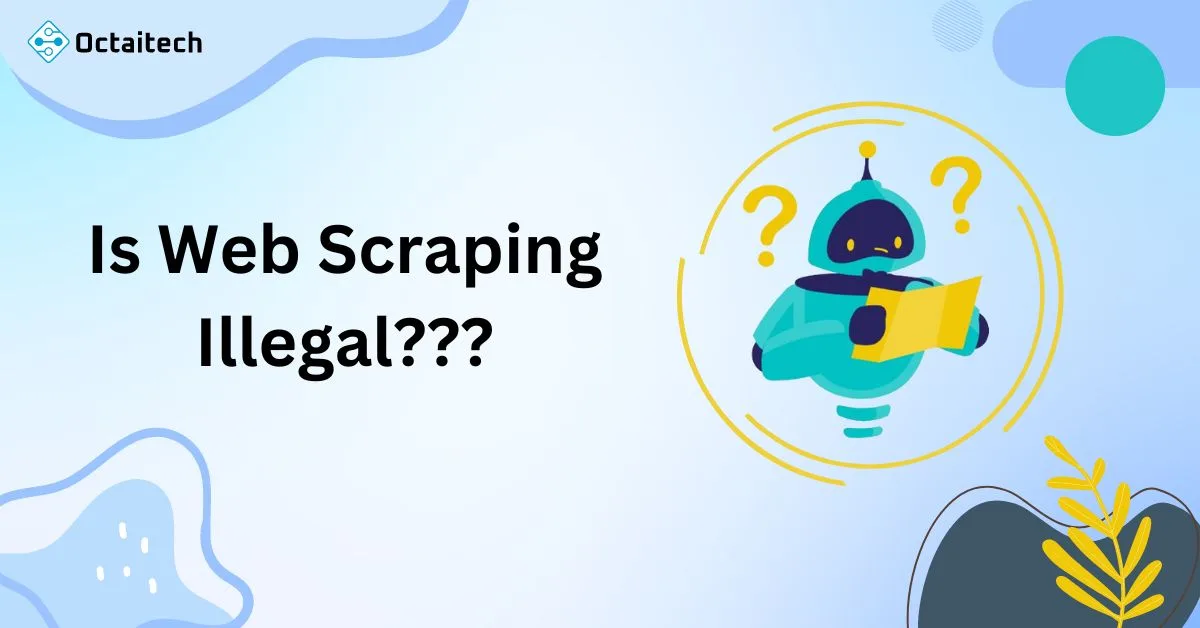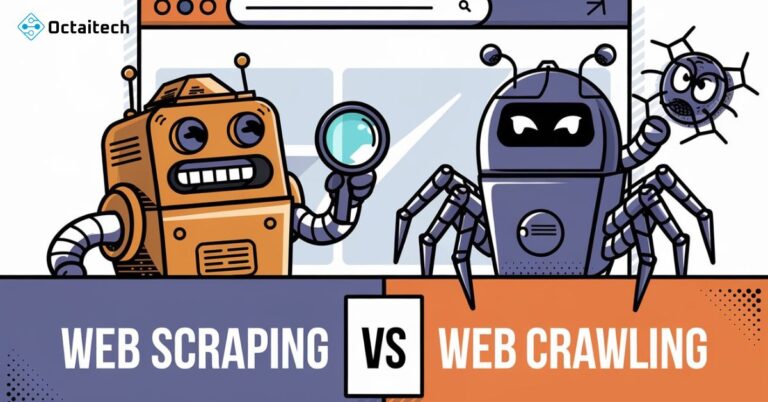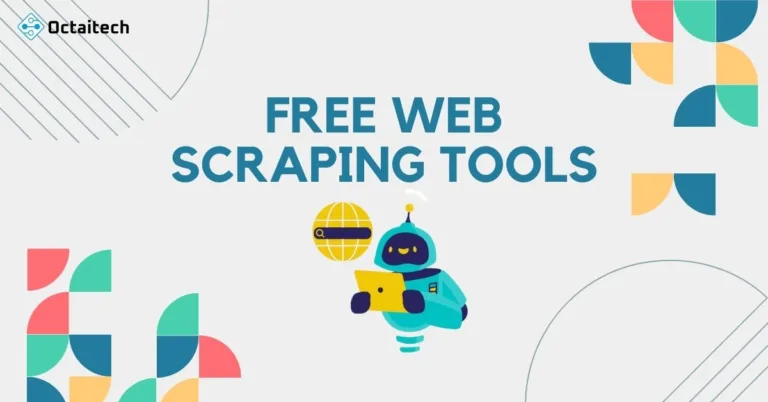Is web scraping legal? The most common question that is asked among the among the data scraping freshers. The legality of web scraping remains a complex and often contentious issue. Worry not, In this comprehensive article, we will dive deep into the various aspects of web scraping legality, examining the challenges, and evolving legal frameworks that shape the landscape.
Understanding Web Scraping Legal Zones:
Web scraping, also known as web harvesting or web data extraction, involves the automated extraction of data from websites. You can learn more about what is data scraping by clicking this link.
Before initiating web scraping activities, it’s imperative to thoroughly understand the legal landscape. Review and adhere to a website’s terms of service, respect robots.txt directives, and stay informed about jurisdiction-specific regulations to establish a solid legal foundation.
The Legal Range
The legality of web scraping is not a binary concept; rather, it exists on a spectrum with certain practices widely accepted, while others are explicitly prohibited. Some websites actively encourage scraping by providing Application Programming Interfaces (APIs) or granting explicit permission for data extraction. Conversely, other websites explicitly prohibit scraping through their terms of service or employ technical measures to impede automated access.
Publicly Accessible Data vs. Private Data
A critical factor in determining the legality of web scraping is the nature of the data being extracted. Publicly accessible data, available without any access restrictions, is generally considered fair game for scraping. For example, scraping weather data from a public meteorological website is likely to be more widely accepted. However, scraping private or sensitive information, such as personal details or proprietary business data, can lead to legal challenges, especially if it violates privacy laws or infringes upon intellectual property rights.
Terms of Service and Contract Law
A fundamental consideration when evaluating the legality of web scraping is the examination of a website’s terms of service (ToS) or terms of use. Websites often include clauses within these agreements that explicitly prohibit automated data collection. Violating these terms can lead to legal consequences, as users are generally considered to have agreed to the terms by accessing and using the site.
However, the enforceability of these contractual terms may vary. Courts in different jurisdictions have interpreted ToS agreements differently, with some requiring clear and conspicuous language to hold users accountable. Moreover, the accessibility of ToS agreements and the user’s actual awareness of the terms can also impact their legal validity. Make sure to go through the website’s ToS pages before scraping to avoid legal barriers.
Copyright Law and Fair Use
Copyright law is another crucial aspect of the web scraping legal landscape. While facts and data are generally not copyrightable, the specific expression, design, or arrangement of content on a website may be protected. Scraping substantial portions of copyrighted material without permission could lead to copyright infringement claims.
The doctrine of fair use, however, provides some leeway for certain types of scraping. Fair use permits the use of copyrighted material for purposes such as criticism, commentary, news reporting, teaching, scholarship, images, or research. For example, quoting a small portion of a news article for the purpose of analysis or commentary may be considered fair use. Scrappers should carefully evaluate whether their activities fall within these permissible categories to mitigate potential legal risks.
Robots.txt and Exclusion Standards
Websites often use a file known as robots.txt to communicate with web crawlers and scrapers, indicating which parts of their site should not be accessed. While adherence to robots.txt is not legally binding, it is considered a best practice and a sign of ethical scraping. Ignoring robots.txt, though not illegal, can be viewed as an aggressive act and may lead to legal repercussions. For instance, Google respects the rules specified in robots.txt, demonstrating the importance of these standards in the web scraping ecosystem.
Trade Secrets and Confidential Information
Web scraping that involves accessing and extracting proprietary or confidential information may run afoul of trade secret laws. Companies invest significant resources in developing and maintaining proprietary databases, client lists, and other sensitive information. Unauthorized scraping to gain access to such confidential data may result in legal action, as it could be deemed an unfair business practice or a violation of trade secret laws.
Computer Fraud and Abuse Act (CFAA)
In the United States, the Computer Fraud and Abuse Act (CFAA) is a federal law that addresses unauthorized access to computers and computer systems. Web scraping activities that involve circumventing technical barriers, breaching authentication mechanisms, or violating a website’s terms of service may be subject to CFAA claims. Courts have interpreted the CFAA in various ways, with some rulings favoring website owners and others adopting a more lenient stance.
Privacy Concerns
Web scraping activities that involve the collection of personal information raise privacy concerns. Various data protection regulations, such as the General Data Protection Regulation (GDPR) in the European Union, mandate strict rules regarding the processing of personal data. Under GDPR, one must obtain explicit consent before processing personal data, which applies to web scraping activities involving European users. Scrapers must comply with these regulations, ensuring that the collection and processing of personal information are conducted transparently, lawfully, and with the appropriate consent.
Landmark Legal Cases
Several landmark legal cases have shaped the discourse around web scraping legality. Notable among them is the case of HiQ Labs, Inc. v. LinkedIn Corporation. In this case, LinkedIn sought to prevent HiQ Labs from scraping its publicly available data, claiming that such scraping constituted a violation of the CFAA and constituted an infringement on LinkedIn’s rights.
However, the U.S. Ninth Circuit Court of Appeals ruled in favor of HiQ Labs, stating that scraping publicly available data did not violate the CFAA. The court emphasized the importance of maintaining an open internet and expressed concerns about the implications of allowing private entities to control access to publicly available information.
Another example is the legal dispute between Craigslist and 3Taps, where Craigslist alleged that 3Taps violated its terms of service by scraping its classified ads.
These cases underlined the ongoing debate about the balance between protecting website owners’ rights and ensuring open access to publicly available data. While the decision for HiQ Labs, Inc. v. LinkedIn Corporation case provided a victory for web scrapers, it did not offer a definitive resolution to the broader legal questions surrounding web scraping.
Challenges in Cross-Border Scraping
Web scraping activities often transcend geographical boundaries, posing challenges related to jurisdictional differences in laws and regulations. Businesses engaged in cross-border scraping must navigate a complex landscape, considering the legal frameworks of each jurisdiction involved. This includes understanding the nuances of data protection laws, intellectual property regulations, and other relevant statutes that may vary from one region to another. An example is the variation in data protection laws between the European Union and the United States, where businesses must adapt their practices to comply with both GDPR and the different regulations in each U.S. state.
Strategies for Legal and Ethical Web Scraping:
Given the complex legal landscape, it is essential for individuals and organizations engaged in web scraping to adopt strategies that ensure compliance with the law and adhere to ethical standards. Here are key considerations:
Review and Respect Website Terms of Service
Before engaging in web scraping activities, carefully review the terms of service or the equivalent agreements of the targeted websites. Explicit permission or prohibitions regarding scraping are often outlined in these documents.
Comply with Applicable Laws and Regulations
Be aware of and comply with relevant laws and regulations, such as copyright laws, data protection regulations, and any industry-specific rules that may apply to the data being scraped.
Adopt Ethical Scraping Practices
Embrace ethical scraping practices by respecting robots.txt rules. Prioritize ethical guidelines by avoiding aggressive scraping that may impact server performance, respecting site-specific rules, and prioritizing responsible data handling practices. A responsible scraper ensures their activities do not overwhelm a website’s server, preserving the user experience and demonstrating ethical conduct.
Explicit User Consent
For web scraping activities involving personal data, obtaining explicit user consent is a crucial ethical strategy. This ensures transparency and compliance with data protection laws, such as the General Data Protection Regulation (GDPR), where user consent is a foundational principle. An example is a website requesting user permission for data collection.
Monitor and Adapt to Legal Developments
Stay informed about legal developments and court rulings related to web scraping. The legal landscape is dynamic, and ongoing vigilance is essential to adjust strategies in response to changing interpretations and precedents. A business should adapt its web scraping practices by following changes in regulations, court decisions, and industry standards to ensure ongoing legal and ethical compliance.
Implement Data Privacy Measures
If the scraped data includes personal information, implement robust measures to anonymize sensitive data during the scraping process. For instance, when scraping healthcare-related websites, ensuring that personally identifiable information is anonymized adheres to ethical principles and legal requirements, safeguarding user privacy. Ensure compliance with relevant data protection regulations, obtain necessary consents, and adopt practices that prioritize user privacy.
Respect Intellectual Property Rights
Mitigate legal risks by respecting intellectual property rights. For example, when scraping content such as images or articles, adhering to fair use principles and obtaining necessary permissions can help navigate this aspect of legality, preserving the rights of content creators.
Cross-Border Considerations
For businesses engaged in cross-border scraping, consider the diverse legal frameworks of each jurisdiction involved. Tailor scraping practices to comply with different regulations. An example includes adapting data protection practices to align with both the European Union’s GDPR and the varied regulations in different U.S. states.
Consider Alternatives to Scraping
Explore alternative methods of obtaining data, such as using publicly available APIs (Application Programming Interfaces) where provided by websites. APIs often offer a sanctioned and structured way to access data without the legal uncertainties associated with scraping.
Is Web Scraping Legal? Bottomline:
As technology continues to advance, the legal landscape surrounding web scraping is likely to evolve. Ongoing debates about data ownership, user privacy, and the open nature of the internet will shape future legal considerations. Policymakers may enact new laws or modify existing ones to address the complexities of web scraping in the context of rapidly evolving digital environments.
In conclusion, the legality of web scraping is a nuanced and evolving issue that requires a careful understanding of legal frameworks, ethical considerations, and technological advancements. While some cases have provided clarity on specific aspects of web scraping, the lack of a universal stance underscores the need for continual vigilance, adaptability, and ethical practices in the realm of web scraping. As individuals and organizations navigate this landscape, a commitment to legal compliance, ethical conduct, and staying alongside of legal developments will be essential to harness the potential of web scraping responsibly in the digital age.
Want to scrape data legally? Why not contact us? Fill out a quick form and we will get back to you as soon as possible. Give our data scraping service a shot.

Arvind Das is a seasoned developer with over 5 years of experience in browser extension development, data scraping, website development, and design. Passionate about creating innovative solutions, Arvind combines technical expertise with a creative mindset to deliver exceptional results. Known for his friendly and outgoing nature, he enjoys sharing knowledge and helping others navigate the world of web technologies.




